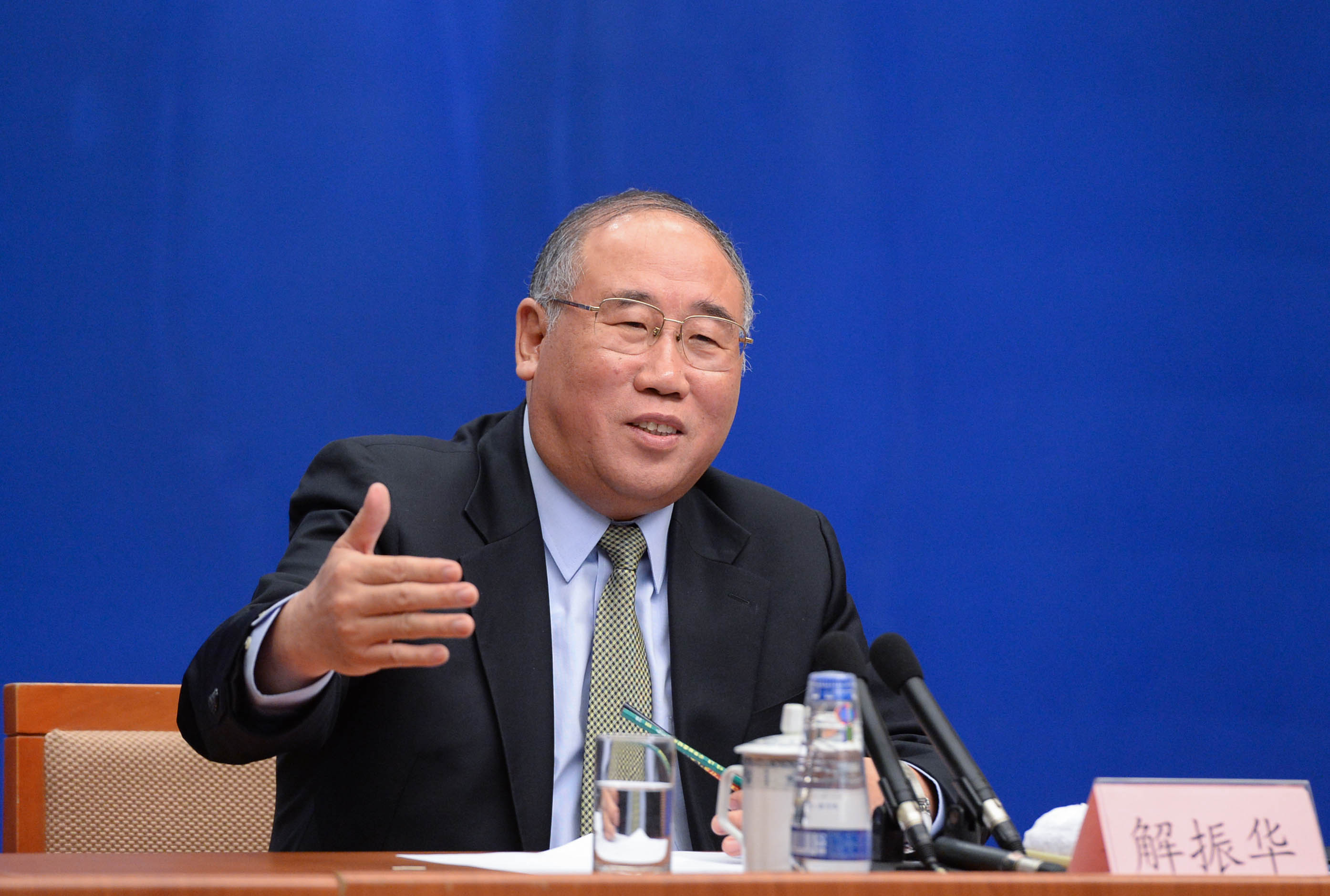As nation’s strength grows, so does its role in global governance

Xie Zhenhua, China’s special representative on climate change, speaks at Boao Forum for Asia on March 13, saying that policies undertaken by the Chinese government have had remarkable effect.
As the world faces a growing number of challenges, it is imperative to enhance international cooperation and improve global governance, some scholars argued at the third High-Level Forum on International Politics and Economics taking place at the University of International Business and Economics on April 16.
Entering center stage
In recent years, China has proposed a series of initiatives and plans with far-reaching influence. The China-led Asian Infrastructure Investment Bank and the New Development Bank of the BRICS have paved the way for the establishment of multilateral financial institutions in developing countries. China has also taken the lead in addressing climate change, showing its sense of responsibility as a major country. Moreover, China has also participated in negotiations to resolve such issues as Iran’s nuclear disarmament, and it has dispatched peacekeeping forces to regions plagued by conflicts.
“China is stepping onto the center stage of global governance in some areas and issues,” said Wu Zhicheng, dean of the Zhou Enlai School of Government at Nankai University. Before, China’s involvement in global governance was more about tackling global issues and challenges, said Gao Zugui, a professor from the Institute for International Strategic Studies of the Central Part School of the Communist Part of China. But now, he said, China is focusing more on the international order to play a greater role in the long-term development of the global system.
One thing to note is that China’s participation is not a challenge to the existing international order, said Chen Yue, dean of the School of International Studies at Renmin University of China, adding that the country’s role in international cooperation is to be both a participant and a leader. Participation is the primary focus, but China should strive to be a leader insofar as the role matches the country’s actual strength.
Rising through cooperation
Jin Canrong, deputy dean of the School of International Studies at Renmin University of China, clarified four ways in which China’s concept of global governance differs from that of the US. Jin said China insists on the central role of the UN, while the US emphasizes alliances. China prioritizes development, while the US focuses more on security. China establishes a global network of partnership based on equality, peace and inclusiveness, while the US classifies nations according to a hierarchy. Lastly, he noted that China does not interfere in the internal affairs of other countries, while the US tries to influence others’ affairs.
Wang Fan, vice-president of China Foreign Affairs University, said that China’s choice is to peacefully rise, which is supported by new views of cooperation, competition, development, security and culture. Under the guidance of the new concept of cooperation, China will not seek to maximize the benefits of one single party, but rather it will stress mutually beneficial solutions.
The new concept of competition intends to change the zero-sum paradigm in which it is deemed necessary for a nation to weaken the development of others to realize its own. The new concept stresses development through healthy competition and the pursuit of equal and balanced development. The new idea of security advocates mutual, comprehensive, cooperative and sustainable security. The new idea of culture stresses inclusiveness, coexistence and sharing.
International partnerships
China’s diplomacy now stands at a turning point, and the nation has opened a new chapter in international relations. Scholars contended that China should properly handle the relationship between national governance and global governance, but domestic development remains the foundation.
China’s confidence in its ability to lead international cooperation is largely determined by its development, especially economic development, said Tao Jian, president of China Foreign Affairs University, adding that China should foster its competitive advantages in participating in and leading international cooperation by unleashing all the advantages of international capacity cooperation, the “Belt and Road” initiative, and other fields.
In addition to economic power, scholars also emphasize soft power. The international community should understand international cooperation as a political expression of interdependency, said Cai Tuo, a scholar from the Globalization and Global Issues Institute at the China University of Political Science and Law. Cai said international cooperation must be viewed from the perspective of human lifestyles and modes of action instead of from the viewpoint of realistic instrumentalism. “China’s proposal of a Community of Common Destiny is just one concept that can be widely accepted and we should systematically interpret it in depth, ” he said.
Mao Li is a reporter at the Chinese Social Sciences Today.
